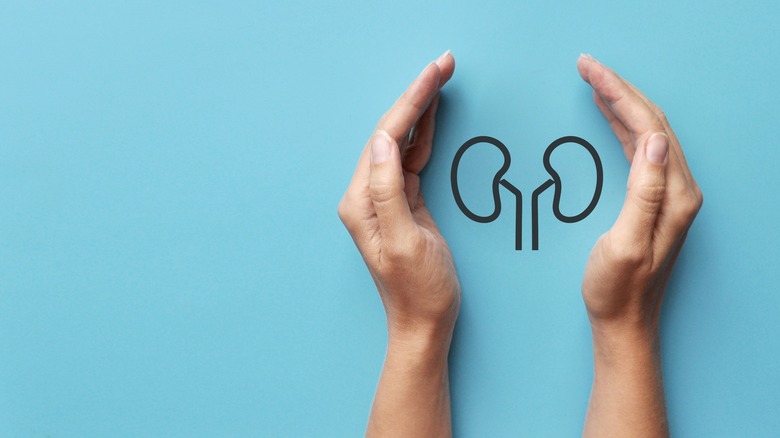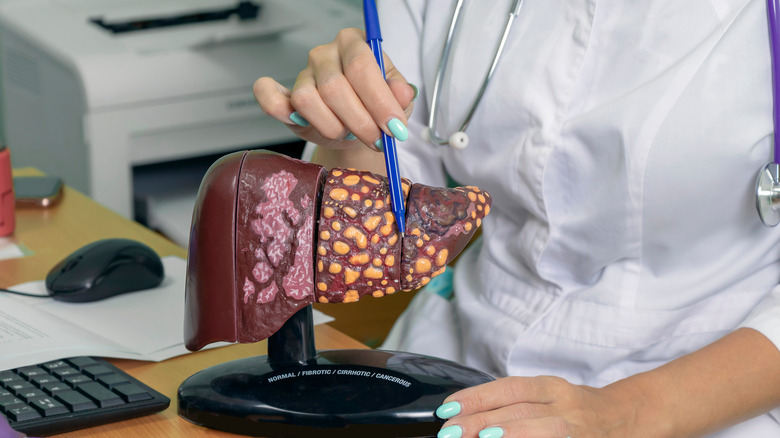What It Means When Your Creatinine Is Low
Creatinine is a chemical waste product made from the breakdown of muscles (WebMD). Once in the bloodstream, it gets filtered through your kidneys and is eventually expelled during urination. In the book "Brenner and Rector's The Kidney," one of the authors, Alan S.L. Yu, says creatinine is important because it aids renal clearance, ensuring that the body excretes foreign substances from the blood. The best way to understand how much creatinine is in your blood is by taking a creatinine test.
According to the University of Rochester Medical Center, creatinine is often measured in milligrams per deciliter of blood (mg/dL). The test results might differ depending on age and gender. In adult men, normal creatinine levels range from 0.7 to 1.3 mg/dL, while 0.5 to 1.1 mg/dL is normal for women.
The causes of low and high creatinine levels vary. However, if your creatinine levels are low, you might notice symptoms of decreased mobility, jaundice, or excess water loss, amongst others (via Healthline). But what exactly causes low creatinine?
Causes of low creatinine
Those with low muscle mass are more likely to have lower creatinine levels, according to the experts at Medical News Today. This might indicate muscle deterioration, which is a natural part of aging and not a serious medical concern. Aside from aging, your diet can cause your creatinine levels to drop below normal. Since creatinine is mostly found in meat, not consuming meat, such as vegetarians or those following a low protein diet, are likely to have significantly low levels.
Keep in mind, some people might experience low creatinine levels due to certain underlying conditions, like liver disease, poor liver function, and muscular dystrophy, which is characterized by muscle weakness, stiffness, and pain (via Healthline).
Low creatinine levels have also been linked to pregnancy, according to a 2022 study published in the journal Scientific Reports. Turns out, creatinine normally decreases during pregnancy, which is likely due to physiological alterations.
Diagnosis and treatment of low creatinine
During a diagnosis, your doctor might recommend one out of two tests. You can take a standard blood test, known as serum creatinine, or a creatinine urine test, which involves collecting urine samples over a 24-hour period (via Mayo Clinic). In preparation for either test, you might be advised not to eat overnight and might have to stop taking creatinine supplements if you're doing so. Once your diagnosis is confirmed, your doctor will let you know the various treatment options.
Treatment for low creatinine levels varies depending on the core issue, according to Healthline. If low muscle mass is the cause, no medical treatment is necessary. However, your doctor might recommend various lifestyle and diet changes to build muscle mass and normalize your creatinine levels. Your doctor might also recommend corticosteroids to improve muscle strength.
Now as far as treatment caused by liver disease goes, it usually begins with medications and lifestyle changes — like quitting alcohol, per Medical News Today. If you're a vegetarian with no underlying conditions, your doctor might prescribe creatinine supplements and gentle exercises to help improve muscle mass.



